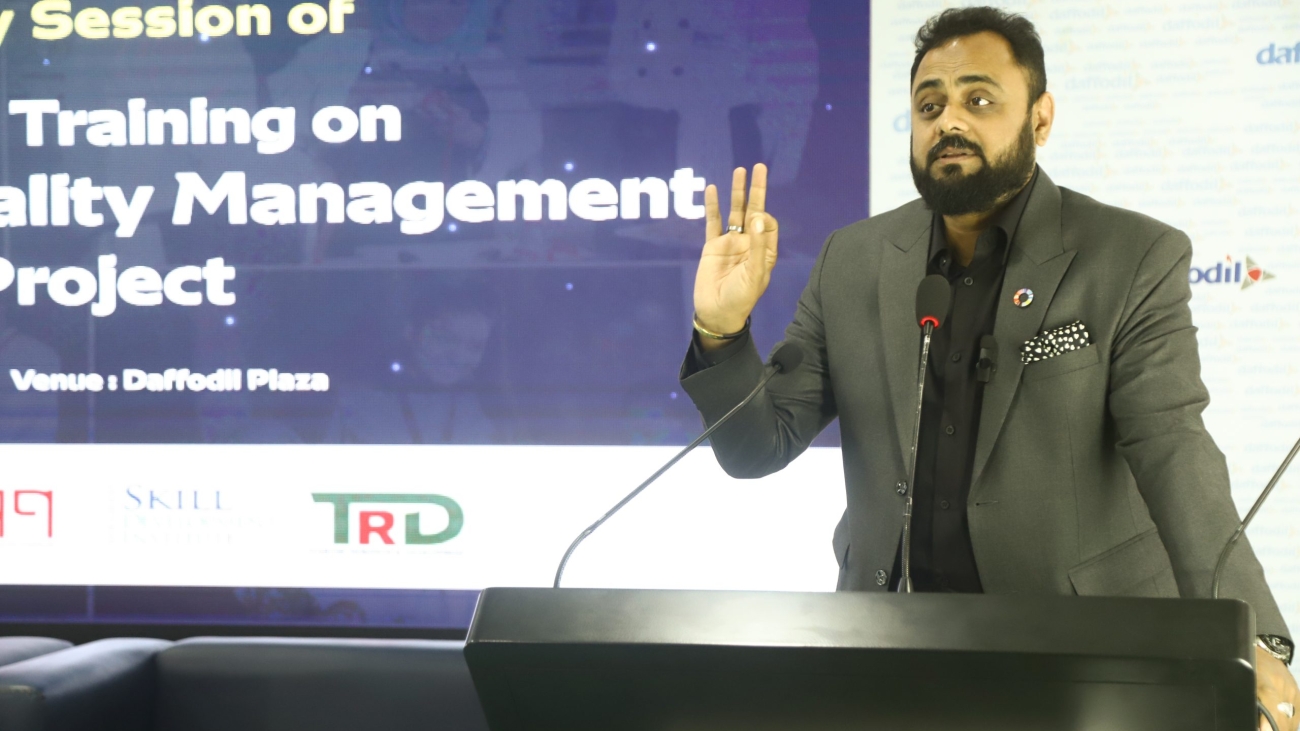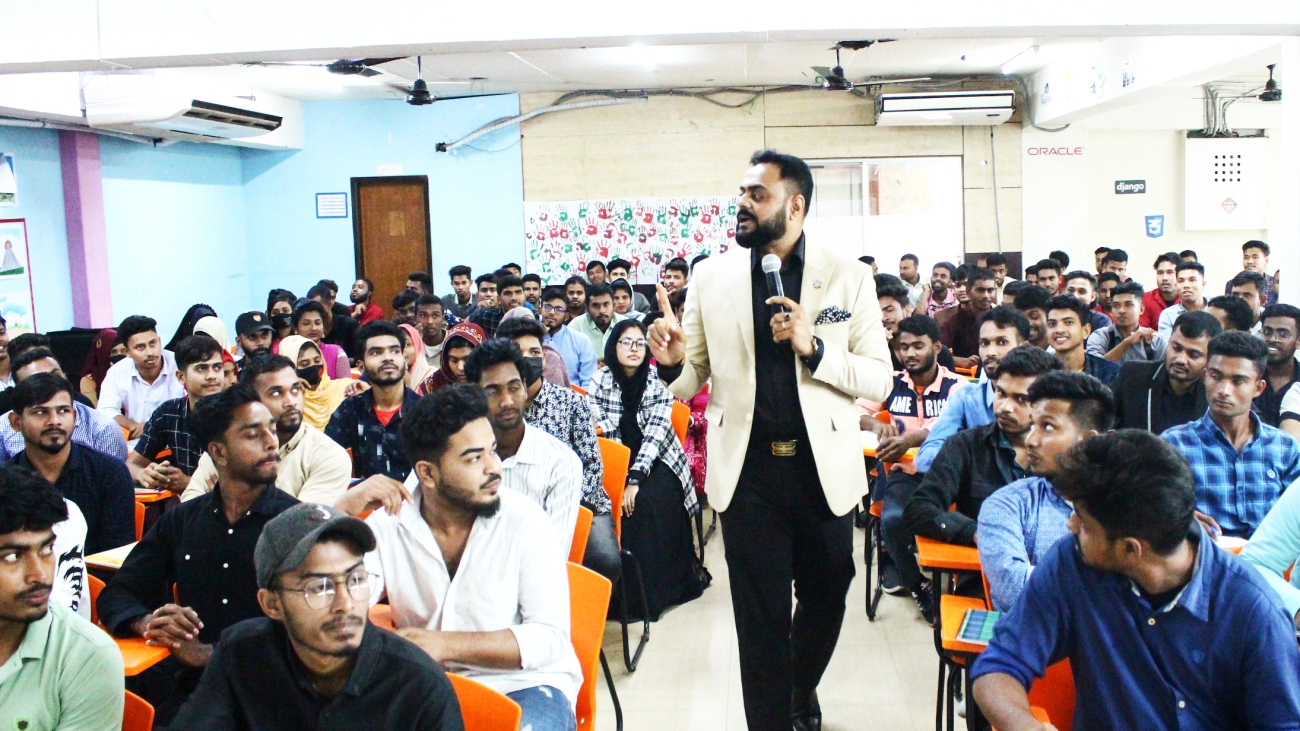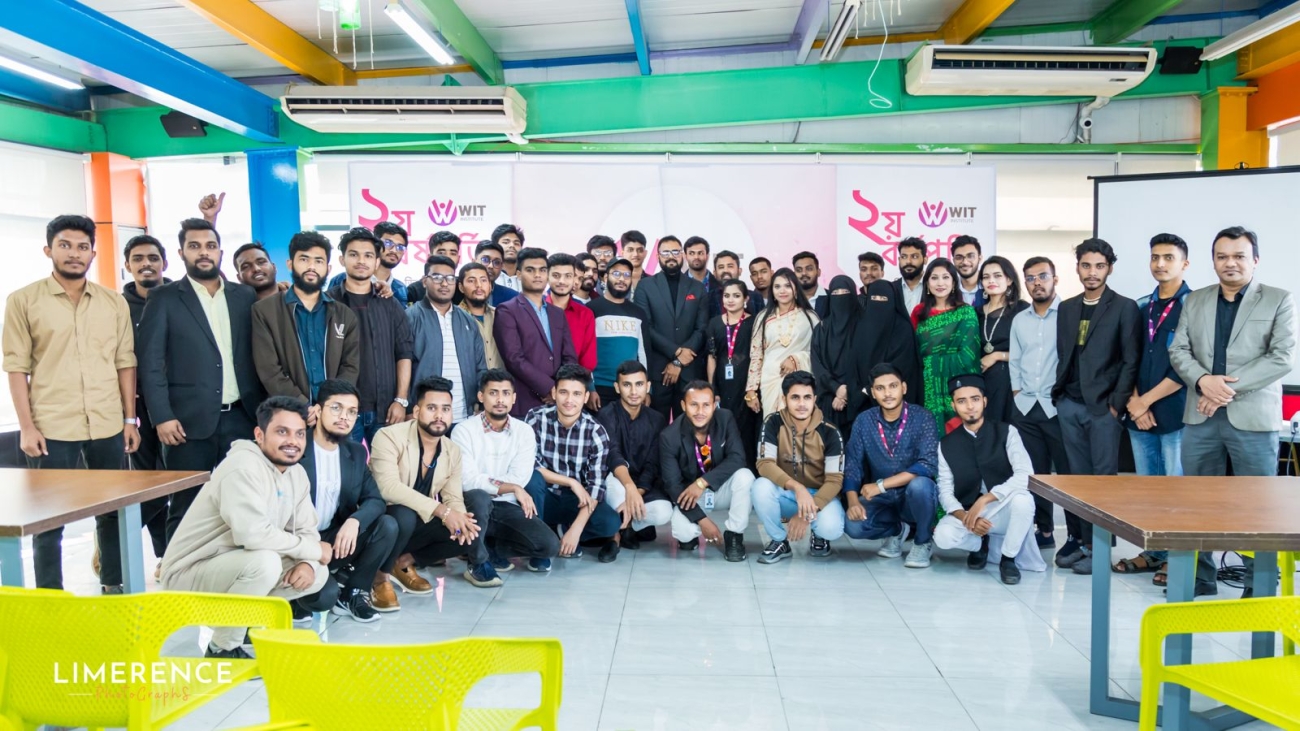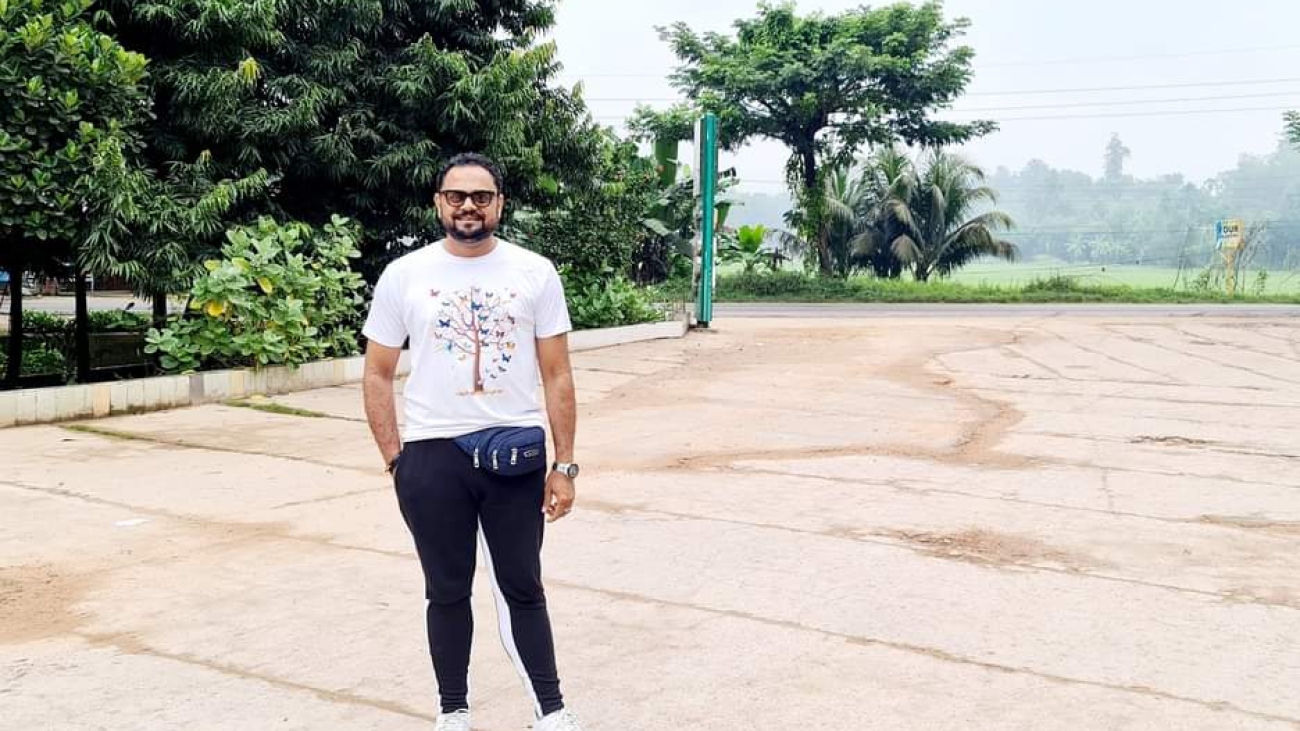এখন আপনি যে অবস্থায় আছেন সেখান থেকেই ব্যক্তিগত ব্র্যান্ডিং শুরু করে দিন। আগামী তিন মাস নীচের ১৫টি ধাপ অনুশীলন এবং অনুরসণ করুন। নিজেই ফলাফল দেখতে পাবেন। প্রথমে নিজের ঢোল নিজেরই বাজাতে হয়। তারপর সেই আওয়াজ যখন মানুষের ভালো লাগতে শুরু করে তখন সেই ঢোল অন্যরা বাজাতে শুরু করে।
ভিজিটিং কার্ডঃ
আপনি এখন যেখানেই আছেন, নিজেকে পরিচয় করিয়ে দেবার জন্য একটি ভিজিটিং কার্ড তৈরি করে ফেলুন। অনেকেই ভাববেন এখনও চাকরি বা ব্যবসা যোগাড় করতে পারিনি, ভিজিটিং কার্ড বানাবো কিভাবে? মনে রাখবেন ভিজিটিং কার্ড হলো আপনার অনুপস্থিতিতে আপনাকে মনে করিয়ে দেবার কাজ করে। অতএব গ্রাফিক্স ডিজাইনের কাজ করে এরকম একটি দোকানে গিয়ে নিজের প্রফেশনাল ছবি, আপনার নাম, যে বিশ্ববিদ্যালয়ের ছাত্র সেটার নাম, যোগাযোগের ঠিকানা, আপনি যে কাজটি খু্ব ভালো পারেন সেটার টাইটেল লিখে আকর্ষণীয় ভিজিটিং কার্ড তৈরি করুন এবং যার সাথেই কথা হবে তাকে গর্বের সাথে কার্ডটি দিন।
ফেসবুকঃ
স্পষ্ট ব্যক্তিগত প্রফেশানাল ছবি, কভার ফটো, এবং আপনার সম্পর্কে পূর্ণ তথ্য ফেসবুকের About Section-এ যুক্ত করুন। মনে রাখবেন ফেসবুক আপনার মার্কেটিং টুলস ছাড়া আর কিছু না। অতএব ব্যক্তিগত আবেগ থেকে বেড়িয়ে নিজেকে প্রচার করার কাজে ব্যবহার করুন ফেসবুককে। আপনার জ্ঞান, দক্ষতা, অভিজ্ঞতা অন্য মানুয়ের সাথে শেয়ার করুন। আজেবাজে মন্তব্য, ছবি, ভিডিও শেয়ার করে আপনার ফেসবুককে ডাস্টবিনে রুপান্তর করবেন না। আর যেহেতু ফেসবুক সম্পূর্ণ মার্কেটিং টুলস হিসেবে ব্যবহারিত হয় তাই যতটা সম্ভব এটিকে উন্মুক্ত রাখুন প্রফেশনাল কন্টেন্ট দিয়ে।
লিঙ্কডইনঃ
স্পষ্ট ব্যক্তিগত প্রফেশানাল ছবি, কভার ফটো, আপনার দক্ষতা, এবং কাজের ইতিহাসের তালিকা এবং রেফারেন্স সহ একটি সম্পূর্ণ লিঙ্কডইন প্রোফাইল তৈরি করুন। গুরুত্বপূর্ণ গ্রুপে যোগ দিন এবং চাকরি বা ব্যবসা সম্পর্কে আপনি যা জানেন তা শেয়ার করুন। মনে রাখবেন লিংকডইন হলো সুযোগ তৈরির কারখানা। অতএব শুধু প্রোফাইল তৈরি করে বসে থাকলে চলবে না।
ইউটিউবঃ
আপনার দক্ষতা দেখানোর জন্য ইউটিউব একটি চমৎকার মাধ্যম। আজকেই ইউটিউভে আপনার একটি চ্যানেল তৈরি করুন। তারপর নিজের দক্ষতা, জ্ঞান এবং অভিজ্ঞতাকে ভিডিওর মাধ্যমে প্রকাশ করুন। মনে রাখবেন মানুষকে আপনি যতো দিবেন, সৃষ্টিকর্তা আপনাকে তত ফেরত দেবেন। তবে আপনার পারসোনালিটি নষ্ট হয় এমন কোন কিছু না করা যাবে না। ভাইরাল হওয়ার প্রতিযোগীতা থেকে নিজেকে দুরে রাখতে হবে।
ব্লগঃ
আপনার সেক্টরের সমসাময়িক বিষয় নিয়ে আপনি যা জানেন তা শেয়ার করতে ব্লগ লিখুন এবং সোস্যাল মিডিয়া যেমন ফেসবুক, লিংকডইনে শেয়ার করুন। আপনি যদি ক্রমাগত উচ্চ-মানের লেখনীর মাধ্যমে মানুষের জ্ঞান ও বিকাশে সাহায্য করতে পারেন তাহলে আপনি আপনার সেক্টরের একজন বিশ্বস্ত ব্যক্তি হয়ে উঠবেন।
সিভিঃ
একটি আকর্ষণীয় এবং মার্জিত সিভি তৈরি করুন যা আপনার দক্ষতা, অভিজ্ঞতা এবং কৃতিত্বকে মানুষের কাছে ফুটিয়ে তুলবে। যদি আগে থেকেই আপনার সিভি তৈরি করা থাকে তাহলে সেটিকে নিয়মিত আপডেট করুন। তারপর সেই সিভি সম্পর্কে প্রফেশনালদের কাছ থেকে লিংকডইনের মাধ্যমে মতামত নেবার চেষ্টা করুন।
ভিডিও সিভিঃ
এইচআরদের কাছে এই মুহুর্তে সবচেয়ে আকর্ষনীয় বিষয় হচ্ছে ভিডিও সিভি বা ভিডিও রিজুমে। ভিডিও সিভি হচ্ছে আপনার নিজের সম্পর্কে ২ থেকে ৩ মিনিটের মধ্যে ভিডিও বার্তার মাধ্যমে বলবেন। সংক্ষেপে নিজেকে পরিচয় করিয়ে দিন, আপনার সবচেয়ে গুরুত্বপূর্ণ সাফল্যের তালিকা করুন এবং আপনি আপনার সেব্টর সম্পর্কে কতটা জ্ঞান রাখেন তা নিয়ে কথা বলুন এবং রেকর্ড করুন। তারপর সেটিকে ইউটিউভ এবং লিংকডইনের মাধ্যমে প্রচার করে ছড়িয়ে দিন। যেহেতু সোস্যাল মিডিয়া বর্ডারমুক্ত তাই কার চোখে যে আপনার ভিডিও রিজুমে পড়বে সেটা আপনি নিজেও বলতে পারবেন না।
কর্মশালা এবং সেমিনারঃ
আপনার দক্ষতার সাথে যুক্ত বিষয়গুলোতে কর্মশালা এবং সেমিনার আয়োজন করুন বা সেগুলোতে অংশ নিন। এটি আপনাকে আরও বেশি মানুষের সাথে সংযোগ স্থাপন করতে সহায়তা করবে।
নেটওয়ার্কিংঃ
নেটওয়ার্কিংয়ের জন্য অনলাইন এবং আউটডোর উভয় ইভেন্টে অংশ নিন। আপনার মতো একই সেক্টরে কাজ করেন এমন মানুষের সাথে পরিচিত হন এবং নিজেকে পরিচয় করিয়ে দিন।
হাসুন এবং খুশি থাকুনঃ
আপনি মনোভাব কেমন সেটা বেশী গুরুত্বপূর্ণ। আপনি যখন অনলাইনে বা আউটডোরে চলাফেরা করেন তখন হাসুন, উচ্ছ্বসিত থাকুন এবং ইতিবাচক মনোভাব রাখুন। খুব সিরিয়াস বা জোকার টাইফের মানুষ ওয়ান টাইম প্রয়োজনে বেশী কাজে লাগে। তাদের সাথে মানুষ প্রয়োজন ছাড়া কথা বলতে আগ্রহী নন।
কোল্ড ইমেলঃ
আপনি যখন সম্ভাব্য ক্লায়েন্ট, বস, বা চাকরিদাতাদের সাথে যোগাযোগ করতে চান, তখন ব্যক্তিগতভাবে কোল্ড ইমেল লিখে পাঠিয়ে দিন। কোল্ড ইমেল হলো এমন যা প্রাপকের কাছে তাদের অনুমতি ছাড়াই পাঠানো হয়। যেমন আপনি কোন ইভেন্টে গিয়ে কারো সাথে পরিচিত হলেন এবং তিনি আপনাকে তার ভিজিটিং কার্ড দিয়েছেন। এখন আপনি বাড়িতে ফিরে তাকে অত্যন্ত ইতিবাচক এবং স্বল্প ভাষায় নিজেকে ইমেইলের মাধ্যমে পরিচয় করিয়ে দিলেন। খেয়াল করে দেখুন আপনি প্রতি সপ্তাহে অনেক ইমেল পেয়ে থাকেন কিন্তু সেগুলোকে কখনো ব্যবহার করেননি।
মেসেঞ্জার বা হোয়াটসঅ্যাপে নিজের পরিচয় দিনঃ
ফার্স্ট ইম্প্রেশন তৈরি করতে চ্যাট এ্যাপ ব্যবহার করুন। আপনার লক্ষ্য ঠিক করুন এবং মেসেঞ্জার বা হোয়াটসঅ্যাপের মাধ্যমে নিজের পরিচয় তুলে ধরুন ইতিবাচক এবং স্বল্প ভাষায়।
কোল্ড এসএমএসঃ
আপনি যখন সম্ভাব্য ক্লায়েন্ট, বস, বা চাকরিদাতাদের সাথে যোগাযোগ করতে চান, তখন ব্যক্তিগতভাবে কোল্ড এসএমএস লিখে পাঠিয়ে দিন। কোল্ড এসএমএস হলো এমন যা প্রাপকের কাছে তাদের অনুমতি ছাড়াই পাঠানো হয়। যেমন আপনি কোন ইভেন্টে গিয়ে কারো সাথে পরিচিত হলেন এবং তিনি আপনাকে তার ভিজিটিং কার্ড দিয়েছেন। এখন আপনি বাড়িতে ফিরে তাকে অত্যন্ত ইতিবাচক এবং স্বল্প ভাষায় নিজেকে এসএমএসের মাধ্যমে পরিচয় করিয়ে দিলেন।
নিজের পোষাক পরিচ্ছদ ঠিক রাখুনঃ
পোষাক যেটাই পড়ুন না কেনো অবশ্যই সেটি পরিষ্কার হতে হবে। মানানসই হতে হবে।
দুঃখের কথা শেয়ার না করে দক্ষতার কথা শেয়ার করুনঃ
আমরা প্রায়ই দেখতে পাই কমেন্টে বা পোস্টে নিজের দুঃখ বা হতাশার কথা অবলিলায় বলে বেড়াচ্ছেন। অনেকে আবার অন্যের বদনাম বলে বেড়াচ্ছেন। এতে আপনার যদি ১% কাজের সুযোগ থাকতো সেটিও হবে না।








